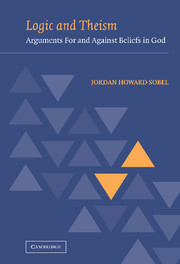X - ‘God Knows (Go Figure)’
Published online by Cambridge University Press: 28 July 2009
Summary
Introduction
1.1. There is a problem with what would be the knowledge of an omniscient being, a problem that derives from what would be its knowledge of itself. An omniscient being who knew everything would know that it knew everything. And of each thing that it knew, it would know that it knew this thing. And it would know more. It would know of each pair of things that it knew, that it knew each thing in this pair, of each trio of things that it knew each thing in this trio, and so on for every set of things it knew. But does not this mean that, per impossibile, an omniscient being would need to know more than it knew?
1.2. Plan. Section 2.1 of Part I presents an argument for the impossibility of omniscience from the impossibility of a set that would include everything a know-it-all would know. This argument harbors one for the stronger conclusion that complete self-knowledge is impossible. Notice is taken in Section 2.2 of arguments that Patrick Grim has made against omniscience, from the impossibility of a set of concepts an omniscient would need to have and from the impossibility of a set of all truths. In Part II, an idea of ‘totalities’ is explained that demands less of them than standard axioms demand of sets, so that the primary argument may be trimmed to its essentials.
- Type
- Chapter
- Information
- Logic and TheismArguments for and against Beliefs in God, pp. 369 - 398Publisher: Cambridge University PressPrint publication year: 2003

